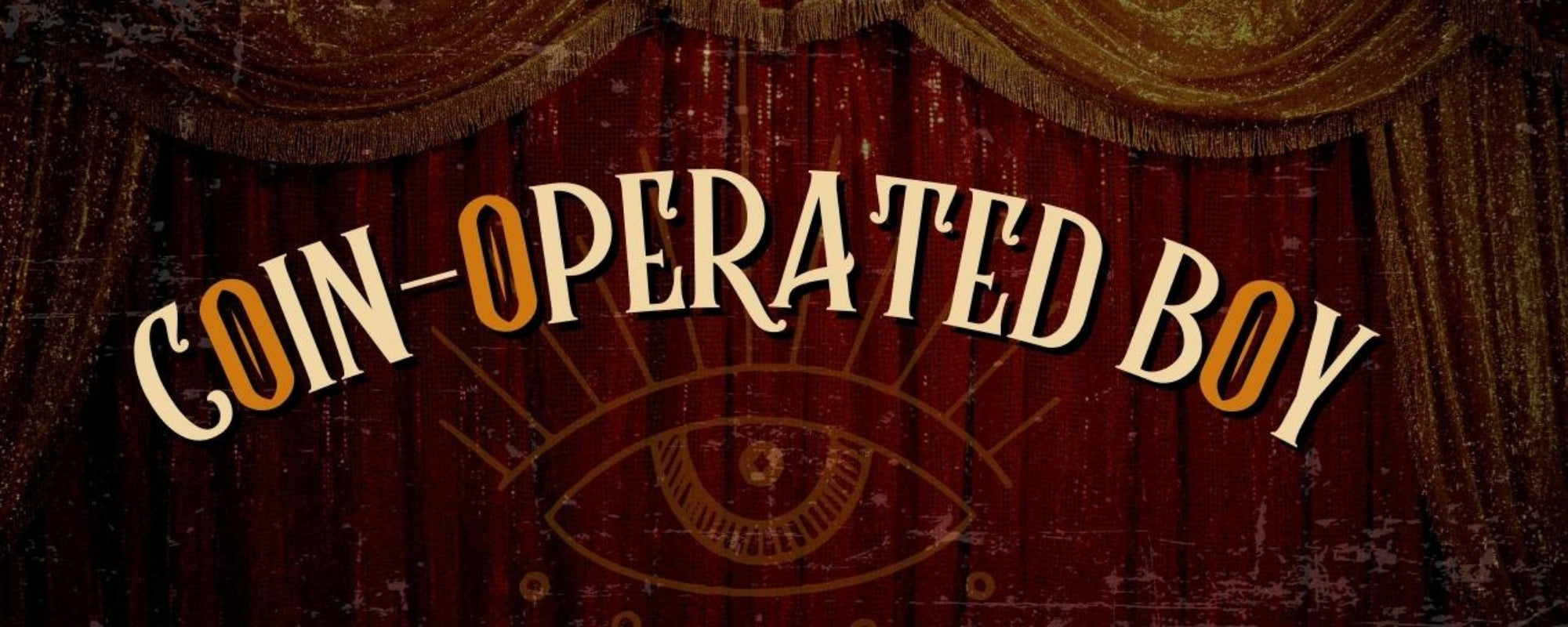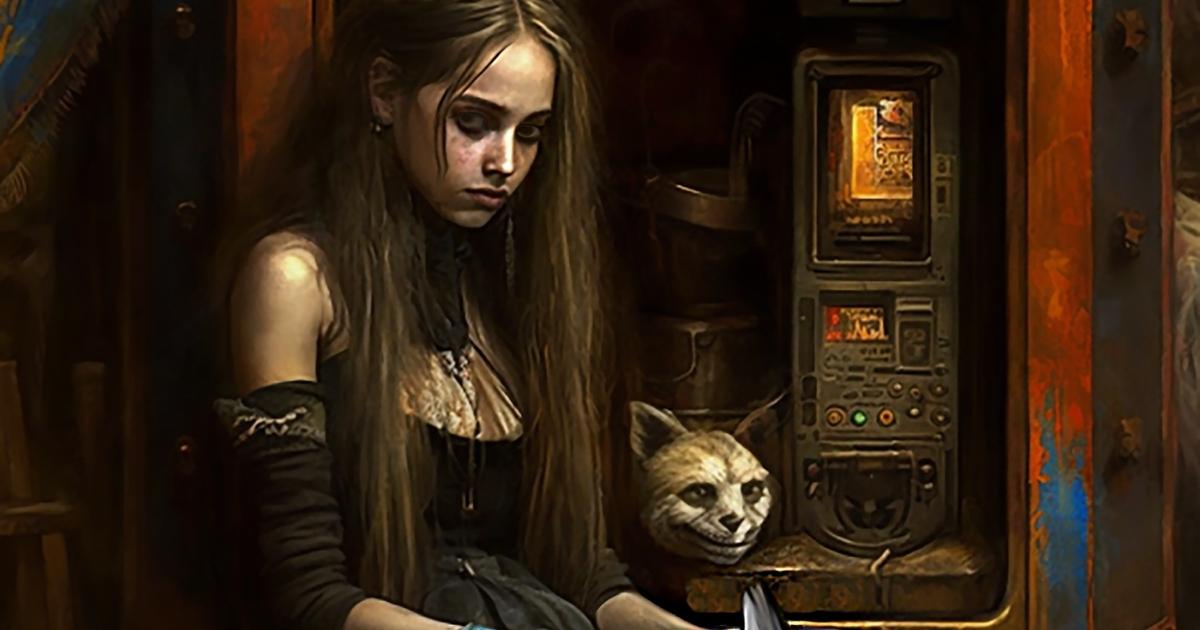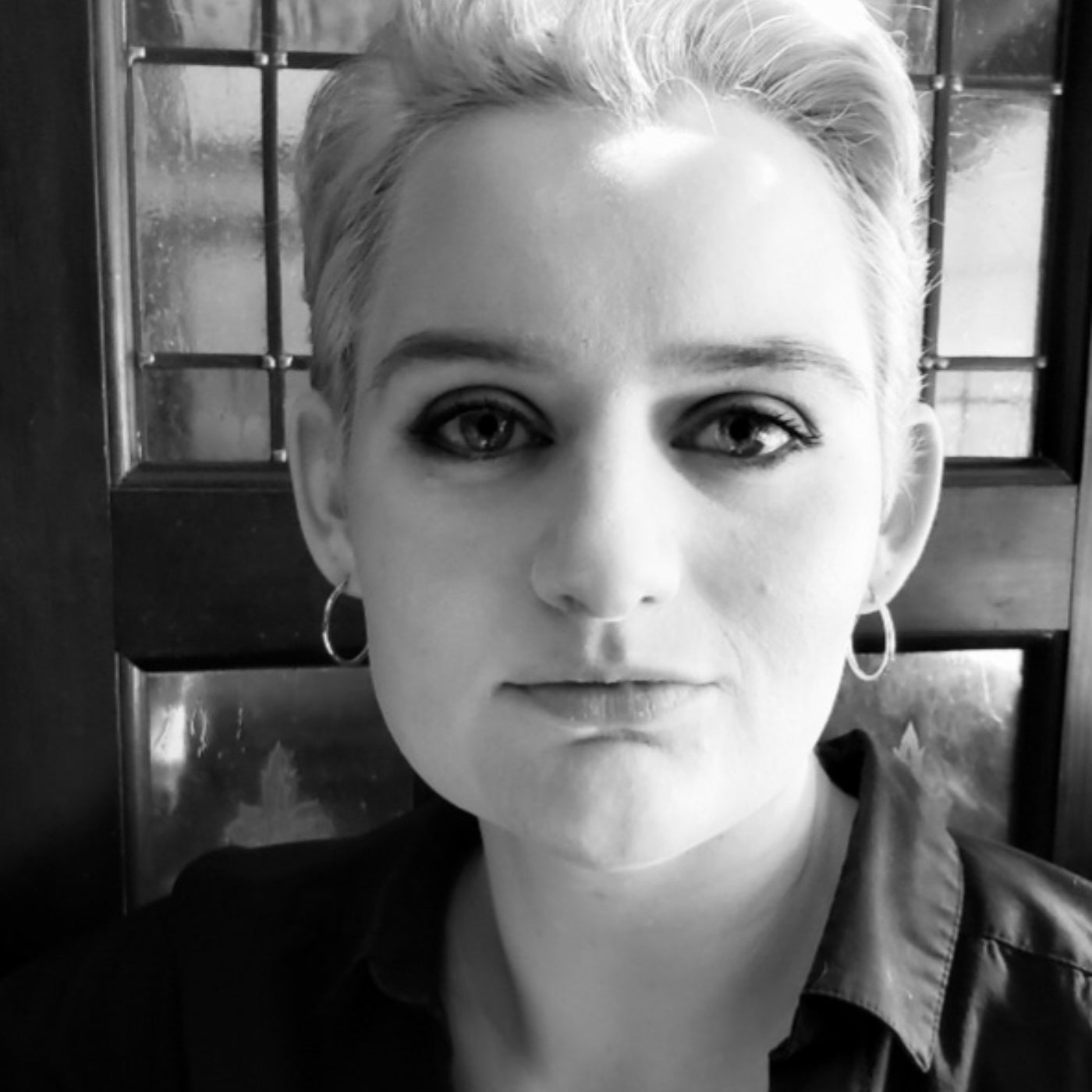

Coin-Operated Boy
By Aia Järvinen
Cora knew no life outside the circus. That’s what they called themselves—the circus—that motley company of human survivors. It was just the humans now, no animals. She would’ve liked to see an animal. The animals had been the first to die. They’d all gone mad one day, incapable of maintaining their natural instincts. Bees and birds had stopped pollinating plants. The plants had died, then the animals who fed on those plants died, then the animals who fed on those animals died, until only humans remained. Then came the Big Whimper, and most of the humans died. She didn’t remember any of that. It was before her time.
Her first memory was the Coin-Operated Boy.
He sat in a glass and metal cabinet, visible only from the waist up and dressed in a dazzling costume of colors that no longer existed. Outside his cabinet, the sky was always the same sickly gray. The air was permeated by thin smoke that never dissipated. The ground was made of metal shrapnel and chunks of concrete. Everyone in the circus wore black. They didn’t have a choice. The toxic environment covered everything in a poisonous film that never washed out. Yet the Coin-Operated Boy was a glistening exception. His shirt was called cobalt, and every time the Firefighter spit a bout of flame, the cobalt shimmered as if by magic, as did the fabric around his head, which was called a turban. It was the color of gold, according to the performers old enough to remember. They said it shone like the sun when it caught the firelight. Cora had never seen the sun. She couldn’t imagine anything shining brighter than her Coin-Operated Boy.
As a child, she spent all her free time playing before his case to keep him company, since he couldn’t leave it. She even sat with him during meals, when the performers drank the liquefied bodies of the dead that was their sole nourishment. There were no other children in the circus. Humans couldn’t make them anymore due to the toxins in everything. She didn’t know what’d happened to her parents. The Doctor—who inspected the tumors of the performers and audience alike, and predicted when they would die—said parents were extinct. Cora didn’t mind. The other circus performers raised her, and she had the Coin-Operated Boy as a friend. He was all she needed.
She watched him for hours through the big dirty goggles of her gas mask, waiting for him to move. She wanted to talk with him, to play with him, but no matter how persistently she tried, he wouldn’t move unless someone fed a coin into the little tarnished slot affixed to his cabinet. There were no more things called Countries or Governments, Banks or the Stock Market, but there were still coins. Money was useless now, except when it came to the Coin-Operated Boy. The performers traded or scavenged for what they needed. Anytime anyone found a coin, they gave it to Cora. When the coin went clink into his cabinet, the boy awoke. His arms danced in the air and his head rolled with the music emanating from his cabinet. It was the last music in existence, the performers said. Things called instruments had all been destroyed, and the magical devices that could supposedly play any song in existence no longer worked without things called Electricity and Service Providers to run them. The Mechanic and the Engineer had affixed a lever to the boy’s cabinet so it could be cranked and never run out of energy. They’d told her the magic was called Manpower.
When he finished his dance, the Coin-Operated Boy would give a slip of paper through another slot. The Ringmaster had told her they were Latin proverbs, but that Latin was a dead language so no one knew what they meant. It saddened Cora to think no one could tell her what the boy was trying to say, for certainly the slips were his way of communicating, but she was a practical girl, and so she let her feelings go. Many humans had died in the Big Whimper. It made sense that languages would’ve died too.
She’d once overheard the Doctor tell the Firefighter that she was simple, which was terribly kind of him. There were no such things as Schools anymore, only stories. Everything she knew was from stories, and she’d once heard a story about someone called a Writer who’d written, ‘Simplify, simplify.’ According to the Storyteller, Writers were the most intelligent people of the Old World. Writers had predicted the events that’d led to the Big Whimper. If a Writer had said to be simple, then it was clearly a compliment. The Old World had become too complicated to sustain. Simplicity was everything in the New World. Humanity’s last era, the Ringmaster often said. Cora was proud of her simplicity. She lived a simple life with the Coin-Operated Boy.
When she was big enough—for no one counted things called Years anymore—the Ringmaster told Cora she had to contribute to the circus if she wanted to stay. She didn’t want to leave, but she didn’t have any skills from the Old World like the elder performers. The Artist had suggested she become a dancer, but they didn’t have any dancers, and Cora didn’t know what one was expected to do. The Artist used ash-ink to sketch her likeness in various poses he called Ballet, and said all she had to do was move from one pose to another.
It was simple enough to learn, and soon Cora became the Dancer, earning her living dancing beneath the circus’ human-fat lamps. The other performers watched her. The audience traded what they could in payment to observe, but in her mind, she danced only for the Coin-Operated Boy. She choreographed her movements to his music. They were a duet, a pair.
Cora didn’t know when she’d fallen in love with the Coin-Operated Boy, only that she had. They were the same size now. She could look into his shining eyes without standing on anything but her tiptoes. She longed to hold his hand, to feel the texture of the colors he wore, to press her lips to his and know whether they were warm or cold, soft or hard. She yearned to understand his messages that no one tried to read but her, though she’d never learned how. No one read anymore. The Storyteller said all the Writers had been smart enough to die with the Old World, back when all the books had burned.
The elder performers died one by one, until only Cora remained. The cabinet’s paper reel had jammed and broken long ago. The Cook was dead, unable to liquefy bodies anymore. There were no more bodies, anyway. Yet she continued to dance for the Coin-Operated Boy. When the crank broke, and the last music left the New World, she sat beside his case to keep him company.
One day, a meteorite shower struck the New World. Unlike the man-made Big Whimper, Cora witnessed the blazing rocks crash into what remained of the circus. The intense pressure shattered the glass separating them. It cracked the boy’s smooth cheek and soiled his clothes with poisonous filth. It was just as well. Her gas mask had ceased to work long ago, and she was close to death. The last human of the New World.
Cora wrapped her weak arms around the Coin-Operated Boy, pressed her lips to his mouth, and sighed in happiness. She’d finally embraced him. She’d finally managed to convey her feelings and reciprocate the years of messages he’d given to her.
Cora collapsed, and thus ended the last human life.
The boy’s arms, which had only ever moved vertically, contracted in jerky movements until they held her limp body. A grinding sound emanated from the cabinet, accompanied by the mechanical clicks and groans of worn-out gears, and a final slip of paper emerged. The inscription hung suspended from its slot, never to be read.
Finis vitae sed non amoris.
Copyright © 2023 Aia Järvinen
The Author

Aia Järvinen


